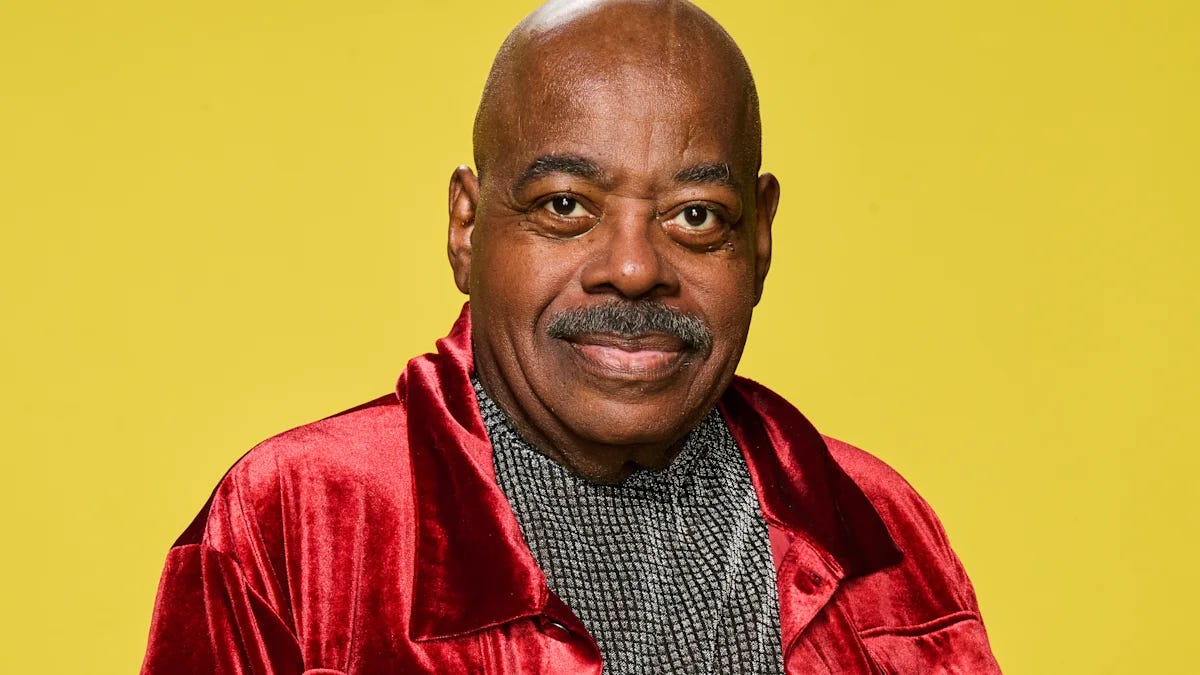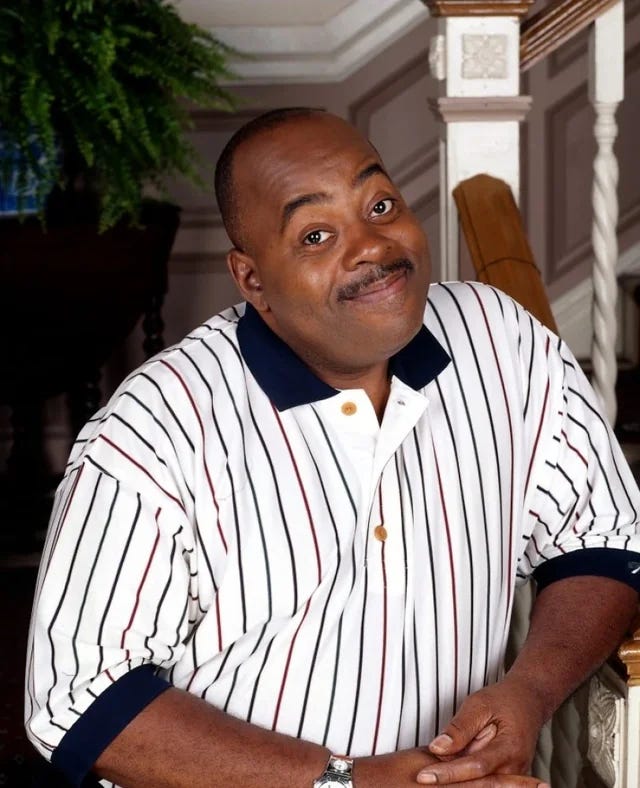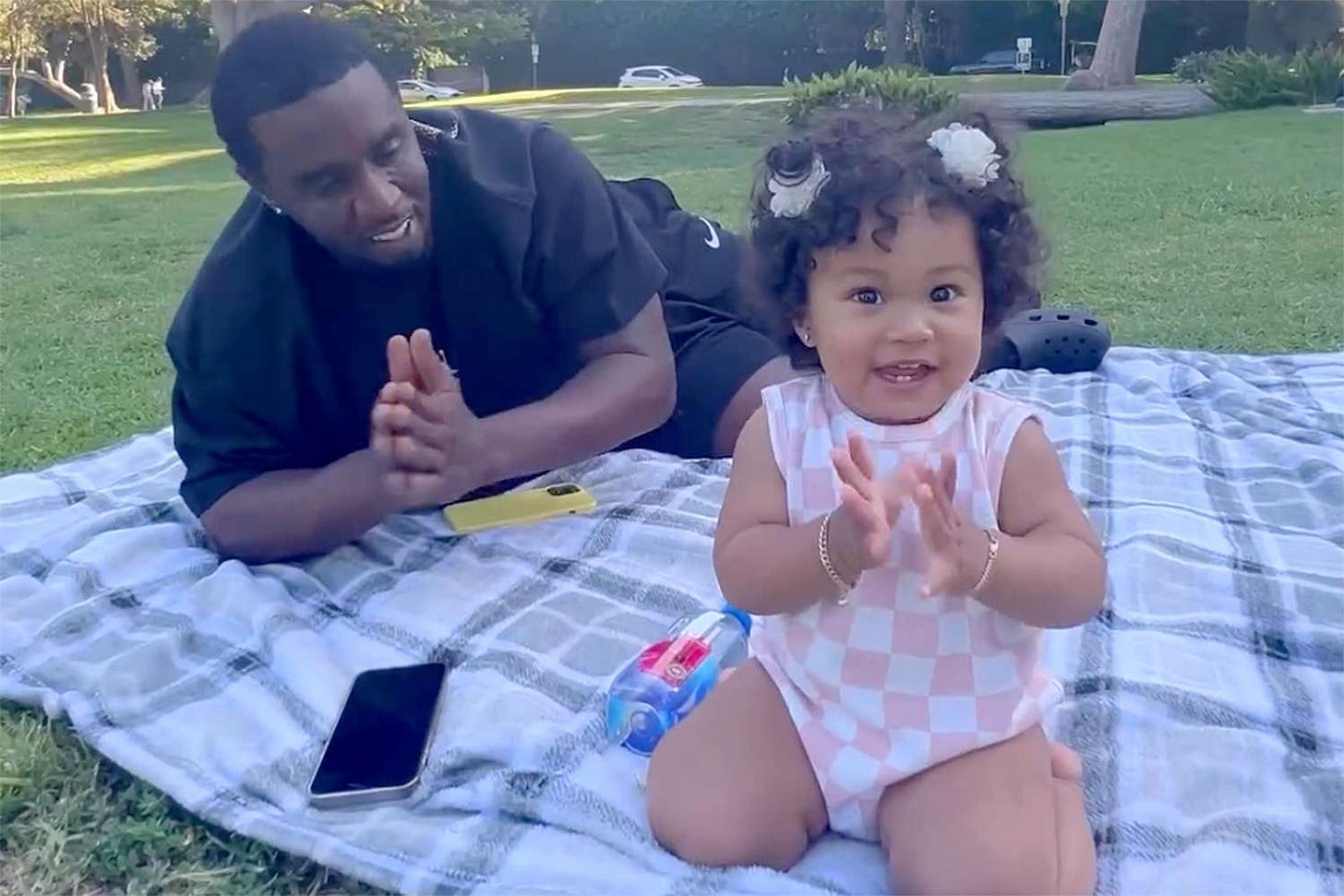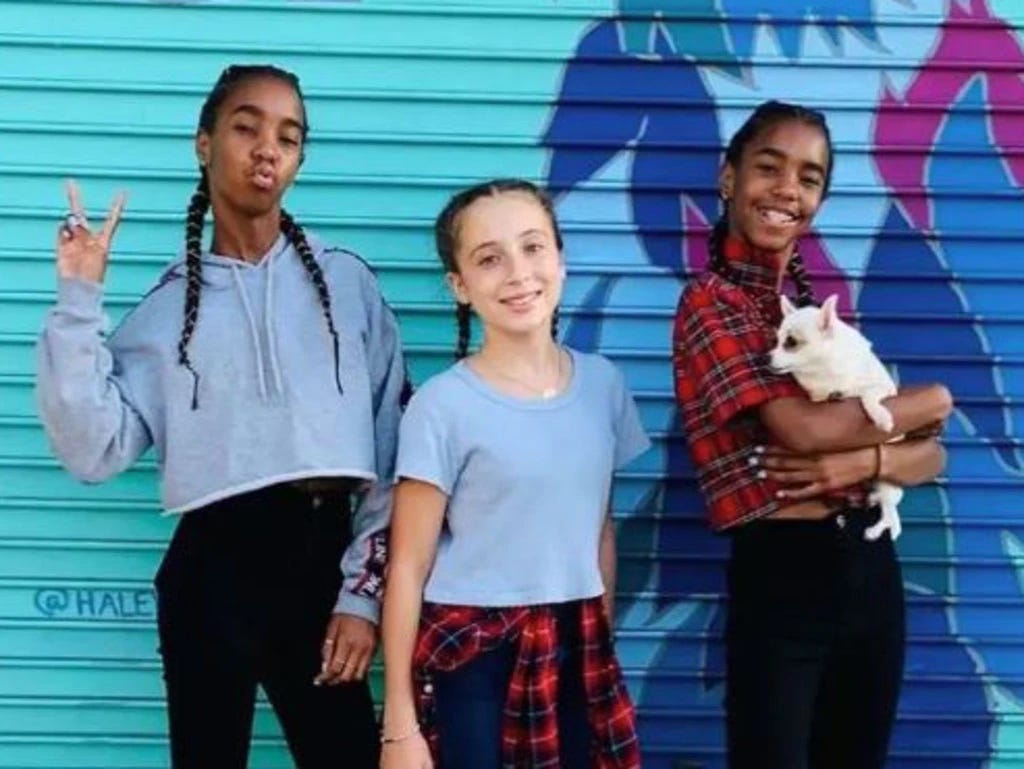Double Diddled by Dad and Diddy
Let’s workshop this poem about the relentless pursuit of personal autonomy devolving into a rudderless state: primitive desires overriding better judgment, leaving no room for the voice of restraint
scent of the day: Fiori d'Ambra, by Profumum Roma. Fiore D’Ambre—a spiced-amber throwback carried out with top-tier ingredients—opens with a combo of creamy vanilla leather (like Shalimar) and soapy incense (like One Man Show Oud Edition) with a twinge of what would seem like honey made from opium poppies (which never happens since their alkaloids are toxic to bees), but then—these first elements receding from the spotlight but continuing to hum—a lemony powder marked by sweet-sour rosiness and patchouli-like earthiness ramps up until it becomes hard not to see this as a denser and more enduring version of Habit Rouge EDP—although here we have hints of unlisted warm spices (perhaps clove, cinnamon) and unlisted warm resins (perhaps myrrh, benzoin, even opoponax) and unlisted warm woods (incensy sandalwood, perhaps cedar too) like we get in Serge Luten’s Ambre Sultan and YSL’s Opium).
Double Diddled by Dad and Diddy*
So hellbent on hacking
at the mooring ropes of others
telling us what to do, one day
we might not know what
to do (too adrift to know what
or even how to choose) except
to ride the tide of inborn impulse
for kid-tang candy and the like—
no hint of akrasia.
*Title should be rapped with the cadence of Big Pun









“Double Diddled by Dad and Diddy" examines the perils of unbridled autonomy in a society obsessed with dismantling external authority. The poem captures a cultural shift toward hyper-individualism, where the rejection of imposed norms leads not to liberation but to existential drift. The title, laced with rap-inspired cadence, underscores the cultural tone of rebellion and defiance, nodding to figures like Big Pun and the ethos of their lyrical bravado, which often centers on breaking free from constraints—be they societal or personal.
The opening lines portray a fierce determination to sever the "mooring ropes" of external guidance, a metaphor for the rejection of authority and traditional frameworks. This act, while initially empowering, is shown to lead to unintended consequences. By dismantling these constraints, the individual risks becoming unanchored, lost in a sea of limitless choice without the tools or structure to navigate it. The phrase "one day we might not know what to do" conveys the creeping realization that freedom without direction can be paralyzing, leaving individuals adrift in a void of indecision and disconnection.
The poem pivots to the idea of "inborn impulse," presenting a vision of a world governed not by reason or deliberation but by primal desires. The reference to "kid-tang candy and the like" evokes a childlike regression, where immediate gratification supplants reflective choice. This imagery suggests a descent into hedonism, where the lack of external guidance or internal discipline leads to a state of akrasia—a philosophical term denoting weakness of will or the inability to act in accordance with rational judgment. The absence of akrasia in this context is not liberating but chilling: it implies a seamless surrender to impulse, where no internal conflict arises because reason itself has been silenced.
The poem critiques a culture that equates freedom with the absence of constraint, illustrating how this can devolve into a form of bondage to instinct. It raises questions about the role of societal norms, external authority, and self-discipline in providing the structure necessary for meaningful choice and action. By juxtaposing the imagery of rebellion against the bleak outcome of its overextension, the poem explores the paradox of freedom: without boundaries, it risks collapsing into its opposite.
hyper-individualism, autonomy, impulse, akrasia, societal norms, mooring ropes, cultural critique, Big Pun, freedom, hedonism, existential drift, self-discipline, rebellion, primal desires.